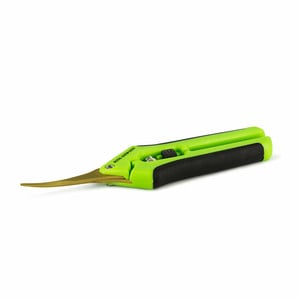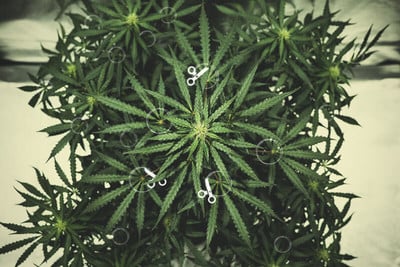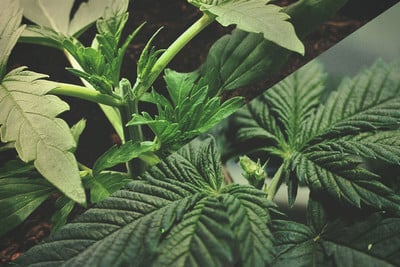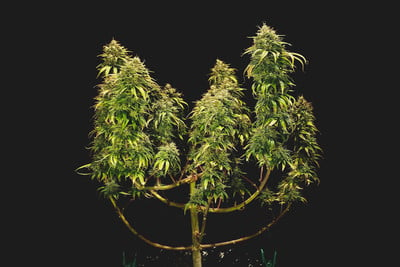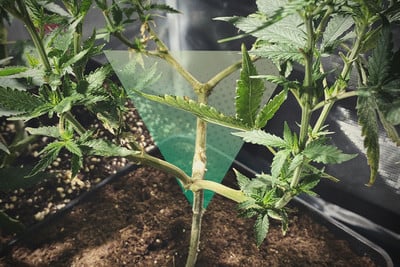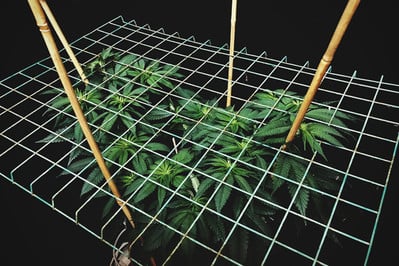 Weed Grow Guide by Royal Queen Seeds
Weed Grow Guide by Royal Queen Seeds
- Growing weed step by step
- Marijuana growing basics
- Choosing your seeds
- How to germinate seeds
- The marijuana vegetative stage
- The marijuana flowering stage
- Harvesting marijuana
- Trimming, drying, and curing
- Choosing pots and soil
-
Growing indoors
- A Complete Overview Of Growing Cannabis Indoors
- Cannabis Cultivation Tips: How To Set Up Indoor Grow Lights
- How Many Cannabis Plants Can You Grow Per Square Metre?
- Indoor Cannabis Growing: Relative Humidity and Temperatures
- Hydroponics Cannabis Growing Guide (with diagrams)
- Cannabis Micro Growing: Growing Great Weed in Tiny Spaces
- Growing outdoors
- How to grow autoflowering marijuana
- Marijuana nutrients and pH
- Marijuana troubleshooting: Nutrients
-
Marijuana troubleshooting: Growing
- Cannabis Seed Germination — Troubleshooting Guide
- How to Deal With Pythium (Root Rot) in Cannabis Plants
- Slow Cannabis Plant Growth And What You Can Do About It
- How to Prevent and Fix Stretching in Cannabis Seedlings
- Watering Your Cannabis: How to Fix Overwatering and Underwatering
- Understanding Male, Female, And Hermaphrodite Cannabis
- Identifying and Treating Common Cannabis Ailments
- How To Revive a Sick Cannabis Plant
- How to Avoid Moldy Marijuana During Drying and Curing
- How to Prevent and Treat Dry and Crispy Cannabis Leaves
- What Cannabis Leaves Can Tell You
- Causes and Solutions for Yellow Cannabis Leaves
-
Marijuana Strains Grow Report
- HulkBerry Automatic Grow Report
- Blue Cheese Auto Grow Report
- Purple Punch Automatic Grow Report
- Triple G Automatic Grow Report
- Do-Si-Dos Automatic Grow Report
- Green Gelato Automatic Grow Report
- Haze Berry Automatic Grow Report
- Purple Queen Automatic Grow Report
- Cookies Gelato Automatic Grow Report
- Sherbet Queen Automatic Grow Report
- Sweet Skunk Automatic Grow Report
- Medusa F1 Grow Report
- Marijuana plant training
-
Marijuana growing tips
- The Cannabis Plant Anatomy
- How to preserve seeds
- How Much Sunlight Do Outdoor Cannabis Plants Need To Grow?
- How to Control and Prevent Stretching in Cannabis Plants
- My Cannabis Plants Are Growing Too Tall: What Should I Do?
- Should You Worry About Purple Or Red Cannabis Stems?
- What To Do When Your Indoor Cannabis Won’t Flower
- How To Protect Your Cannabis Plants From Heat Stress
- How To Tell If Your Female Cannabis Plant Has Been Pollinated
- Growing Medical Marijuana
- Bud Washing: How to Clean Your Weed
- Understanding Cannabis Yield per Plant

How To Dramatically Boost Yields With Cannabis Lollipopping
Lollipopping is a pruning technique that helps your cannabis plants focus their energy on their biggest bud sites, usually around their canopies. It’s easy, low-stress, and it can help you produce heavy harvests of some exceptional buds. Read on to learn more about lollipopping your cannabis.
Contents:
The Benefits of Lollipopping
Cannabis plants, like any other, generate energy from the light, water, and nutrients they take in from their environment. This energy, however, is limited. Lollipopping, as it’s referred to among growers, is all about helping your plants focus that energy on developing buds in the right places. More specifically, it shifts focus towards parts of the plant that receive the most light.
Untrimmed or untrained cannabis plants grow like Christmas trees. By the time they’re ready to flower, it’s likely they’ll have developed a dense canopy that allows very little light to break through. This means, of course, that light won’t reach the bud sites toward the bottom. Left untouched, these lower nodes will produce small, airy “popcorn” buds that lack potency, flavor and aroma, and bag appeal.
Lollipopping involves removing growth up to a certain point on each branch of your cannabis plant to maximise efforts towards the topmost bud sites.
By lollipopping, you not only help direct light to the right nodes, but optimise the limited energy stores of your plants. The end result is a heavier harvest of big, dense buds with maximum potency and flavor.


How to Lollipop Your Cannabis Plants
Lollipopping is a simple technique, but you should still exercise caution. You’ll want to lollipop your plants just before they begin flowering. We also recommend pruning—removing unnecessary branches—as well, although you should proceed slowly, and with a plan.
1. Start with sharp, clean shears to prune your plants. Our curved trimming scissors, for example, are great for making precise cuts close to the nodes. For bigger, thicker branches, invest in a pair of shears. Begin by removing obvious foliage. The first few branches near the bottom of your plant obviously won’t get enough light to develop fully. Get rid of these first.


2. Once you’ve taken care of the most obvious problem areas, we recommend following Kyle Kushman’s pruning advice and removing any branches that don’t break at least 50% of the height of the plant. As your plants stretch during the early weeks of flowering, these branches will get shaded out and never develop properly. Lollipopping doesn't have to involve removing entire branches, but pruning is often used in tandem as necessary.


3. Next, start removing branches growing in the middle of the plant, specifically those underneath the canopy. Not only will they likely not get enough light, but this interior foliage also covers up a lot of sites that could develop into sizable buds. Also at this stage, you should remove any branches or leaves that are dying or yellowing.


4. Finally, you’ll want to get to actually lollipopping each individual branch on your plant. Some growers recommend leaving no more than three nodes from the tip of each branch. That, however, depends a lot on the strain, the size, and the health of the individual plant. The time at which you’re pruning also comes into play. If your plants are smaller and you’re trimming late, for example, we recommend trimming below the top 4/5 nodes. In any case, remove all the growth leading up to the topmost nodes on each branch.


Once you’ve lollipopped each branch, we recommend giving your plants 2–3 days to recover before flipping your lights. Also, remember not to over-prune as this can stunt their growth. If you’ve never tried lollipopping before, start slow and work your way up to an ideal pruning strategy.
Lollipopping Vs Defoliation — Understanding the Differences
Defoliation is not the same technique as lollipopping, but many growers get the two confused. While they both involve removing leaves, lollipopping focuses on the bottom part of a plant. Essentially, it's all about removing growth that doesn't get enough light. This process allows plants to focus energy on developing buds at the top of their canopy, where light is abundant. Visually, lollipopped plants have bare stems with no foliage towards the bottom, similar to a lollipop stick.
On the other hand, defoliation is all about improving light exposure and airflow for all parts of the plant. Rather than giving exclusive preference to buds at the top, defoliation gives all buds a chance. If you want to try it out, we recommend reading deeper into the defoliation process and the benefits it can offer.


Combine Lollipopping With Scrog and Main-lining
To really improve the size and quality of your yields, we recommend coupling lollipopping with other training techniques.
Main-lining, for instance, is the key to controlling the natural apical dominance of cannabis plants. It involves using a combination of topping and LST to create symmetrical plants with a Y-shaped, manifold-like main stem. Every time you do this, you multiply the number of colas your plant develops and help evenly direct its flow of energy to all of its branches.
This, in particular, is a technique that goes extremely well with lollipopping. When combined, these two techniques not only maximise the light in your grow space, but also enhance your plants’ energy for bud production.
Besides main-lining, lollipopping also works exceptionally well with ScrOG. Remember that ScrOG is all about developing an even canopy by weaving growth through a mesh screen. By coupling ScrOG with main-lining and lollipopping, you’ll be helping your plants direct energy evenly and efficiently towards this canopy.


Start Lollipopping Today!
If you’re approaching flowering time, we highly recommend trying the lollipopping technique before flipping your lights. Remember, though, you should start slow and with reserve. If you’re new to this technique, consider trying different degrees of lollipopping and pruning on different plants of the same strain, then compare your results during harvest time to find that sweet spot.
 Grow Guide Topic Finder
Grow Guide Topic Finder
- Growing weed step by step
- Marijuana growing basics
- Choosing your seeds
- How to germinate seeds
- The marijuana vegetative stage
- The marijuana flowering stage
- Harvesting marijuana
- Trimming, drying, and curing
- Choosing pots and soil
-
Growing indoors
- A Complete Overview Of Growing Cannabis Indoors
- Cannabis Cultivation Tips: How To Set Up Indoor Grow Lights
- How Many Cannabis Plants Can You Grow Per Square Metre?
- Indoor Cannabis Growing: Relative Humidity and Temperatures
- Hydroponics Cannabis Growing Guide (with diagrams)
- Cannabis Micro Growing: Growing Great Weed in Tiny Spaces
- Growing outdoors
- How to grow autoflowering marijuana
- Marijuana nutrients and pH
- Marijuana troubleshooting: Nutrients
-
Marijuana troubleshooting: Growing
- Cannabis Seed Germination — Troubleshooting Guide
- How to Deal With Pythium (Root Rot) in Cannabis Plants
- Slow Cannabis Plant Growth And What You Can Do About It
- How to Prevent and Fix Stretching in Cannabis Seedlings
- Watering Your Cannabis: How to Fix Overwatering and Underwatering
- Understanding Male, Female, And Hermaphrodite Cannabis
- Identifying and Treating Common Cannabis Ailments
- How To Revive a Sick Cannabis Plant
- How to Avoid Moldy Marijuana During Drying and Curing
- How to Prevent and Treat Dry and Crispy Cannabis Leaves
- What Cannabis Leaves Can Tell You
- Causes and Solutions for Yellow Cannabis Leaves
-
Marijuana Strains Grow Report
- HulkBerry Automatic Grow Report
- Blue Cheese Auto Grow Report
- Purple Punch Automatic Grow Report
- Triple G Automatic Grow Report
- Do-Si-Dos Automatic Grow Report
- Green Gelato Automatic Grow Report
- Haze Berry Automatic Grow Report
- Purple Queen Automatic Grow Report
- Cookies Gelato Automatic Grow Report
- Sherbet Queen Automatic Grow Report
- Sweet Skunk Automatic Grow Report
- Medusa F1 Grow Report
- Marijuana plant training
-
Marijuana growing tips
- The Cannabis Plant Anatomy
- How to preserve seeds
- How Much Sunlight Do Outdoor Cannabis Plants Need To Grow?
- How to Control and Prevent Stretching in Cannabis Plants
- My Cannabis Plants Are Growing Too Tall: What Should I Do?
- Should You Worry About Purple Or Red Cannabis Stems?
- What To Do When Your Indoor Cannabis Won’t Flower
- How To Protect Your Cannabis Plants From Heat Stress
- How To Tell If Your Female Cannabis Plant Has Been Pollinated
- Growing Medical Marijuana
- Bud Washing: How to Clean Your Weed
- Understanding Cannabis Yield per Plant


























